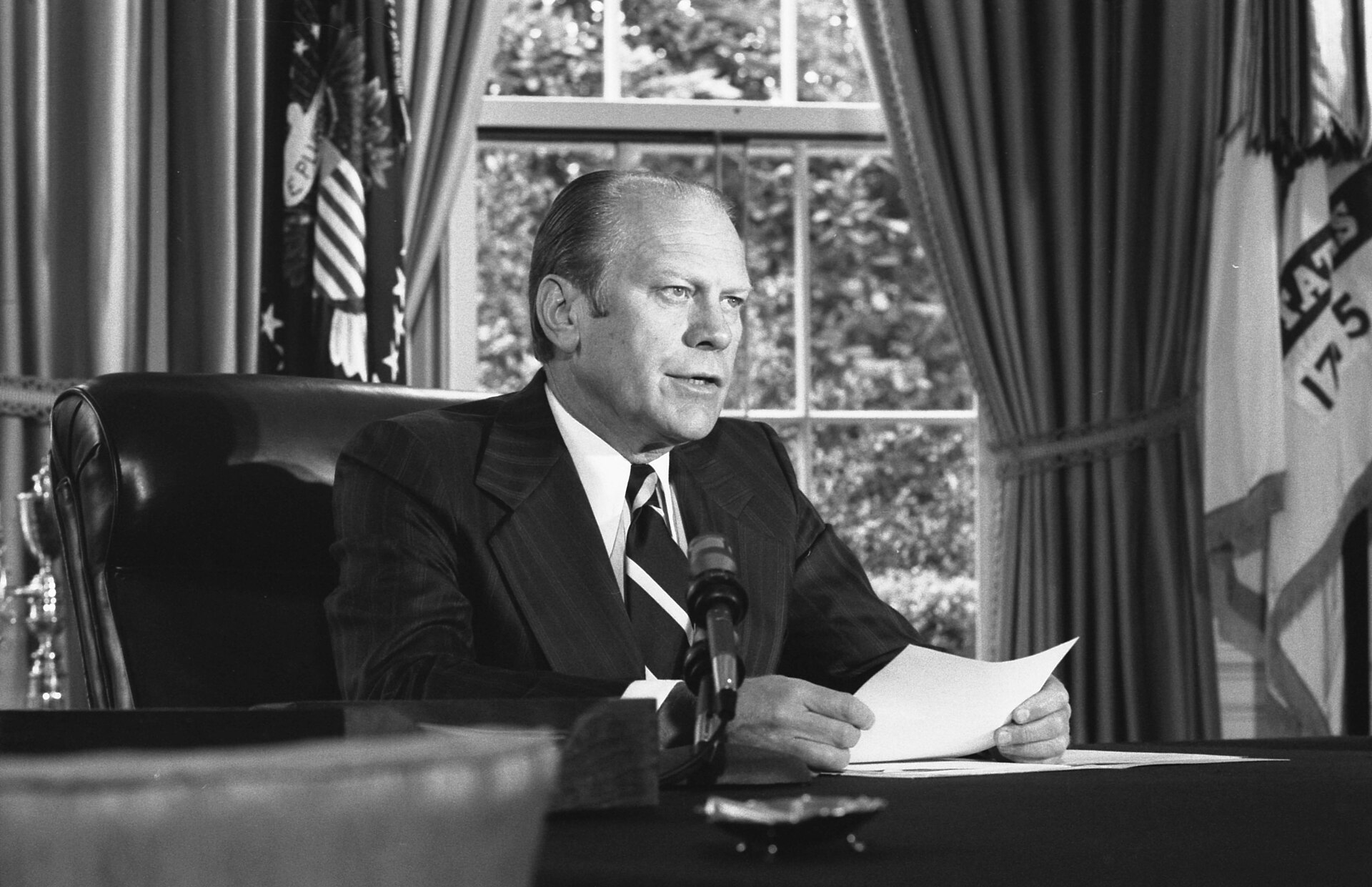In the science fiction series Star Trek the Kobayashi Maru scenario is an exercise at Starfleet Academy. The training exercise is set up so that no matter what decisions are made, the result is failure. Kobayashi Maru tests a cadet’s character and leadership abilities when faced with a no-win situation. In 1974, President Ford found himself in a political Kobayashi Maru situation.
Richard Nixon had resigned from the presidency due to the Watergate scandal. Speculation about Nixon’s future had become a national obsession. Ford felt that the disillusionment caused by the Watergate scandal made it difficult to focus on other national issues. Ford had a decision to make: to have Nixon stand trial or to grant him a blanket pardon. A pardon would enrage voters who wanted to see Nixon go to prison for his crimes. A pardon could cost Ford the next presidential election. In remarks made on September 8, 1974, President Ford stated his fears about putting the former president on trial.
“The facts, as I see them, are that a former President of the United States, instead of enjoying equal treatment with any other citizen accused of violating the law, would be cruelly and excessively penalized either in preserving the presumption of his innocence or in obtaining a speedy determination of his guilt in order to repay a legal debt to society.”
“During this long period of delay and potential litigation, ugly passions would again be aroused. And our people would again be polarized in their opinions.”
“… the credibility of our free institutions of government would again be challenged at home and abroad.”
Ford issued a blanket pardon to the former president. Many voters wanted to see Nixon punished for his crimes. For those voters, Ford’s decision to issue a pardon was unforgivable. Ford lost the 1976 election. Today, even though many Americans are cynical about the Nixon pardon, Ford’s concerns are proving true regarding the upcoming trials of former president Trump.
Every day, we read news accounts of concerns about the mechanics of litigation, the extreme polarization of political passions, and the legitimacy of the justice system. Also, Nixon’s acceptance of a pardon had the effect of being a tacit acknowledgment of guilt. What if former president Trump is found not guilty? Conservative commentator Hugh Hewitt wrote on Twitter,
“What will be the mood in the country, what will historians write in 100 years, if fmr President Trump is either acquitted on all counts in all four jurisdictions, or all charges are dismissed by higher courts, but it happens after he loses a close rematch with President Biden?”
Years after leaving the presidency, Gerald Ford said,
“…it was absolutely the right decision, and in the passing of time I’m more convinced now than I was then that it was the right thing to do.”
Ford made a decision and lost the election, but his concerns about putting a former president on trial have proven to be prescient. Kobayashi Maru.
Sources
https://memory-alpha.fandom.com/wiki/Kobayashi_Maru_scenario
https://www.mediamatters.org/washington-post/bob-woodward-keeps-spinning-ford-pardon
https://geraldrfordfoundation.org/iptv-50th-anniversary-feature-ford-reflects-on-nixon-pardon/
https://www.enotes.com/homework-help/why-did-gerald-ford-lose-the-election-1810305
https://www.historynet.com/gerald-fords-near-miracle-of-1976
Thanks, and a tip of the hat to David Hume Kennerly – Gerald R. Ford Presidential Library: A0627-09 for the image.



























